Worker Protection Act commenced 26th October 2024
UK employers now face legal action for non-compliance.
The Employment Rights Act 2026 brings major changes to UK employment laws. To learn how to prepare for the Employment Rights Act 2026 effectively, businesses must understand these changes and update their practices. In this guide, we will outline the key reforms and provide practical steps you can take to ensure compliance.
The Employment Rights Bill introduces extensive reforms, including shifting to a two-tier employment status system and implementing day one rights for employees, such as protections against unfair dismissal.
Significant changes include a ban on exploitative zero-hours contracts, mandatory flexible working arrangements from day one, and enhanced family leave provisions, emphasising worker rights and job security.
Employer compliance is crucial; legal advice and updates to employment contracts and workplace policies are necessary to align with new protections, enforcement mechanisms, and reporting requirements mandated by the Employment Rights Act.
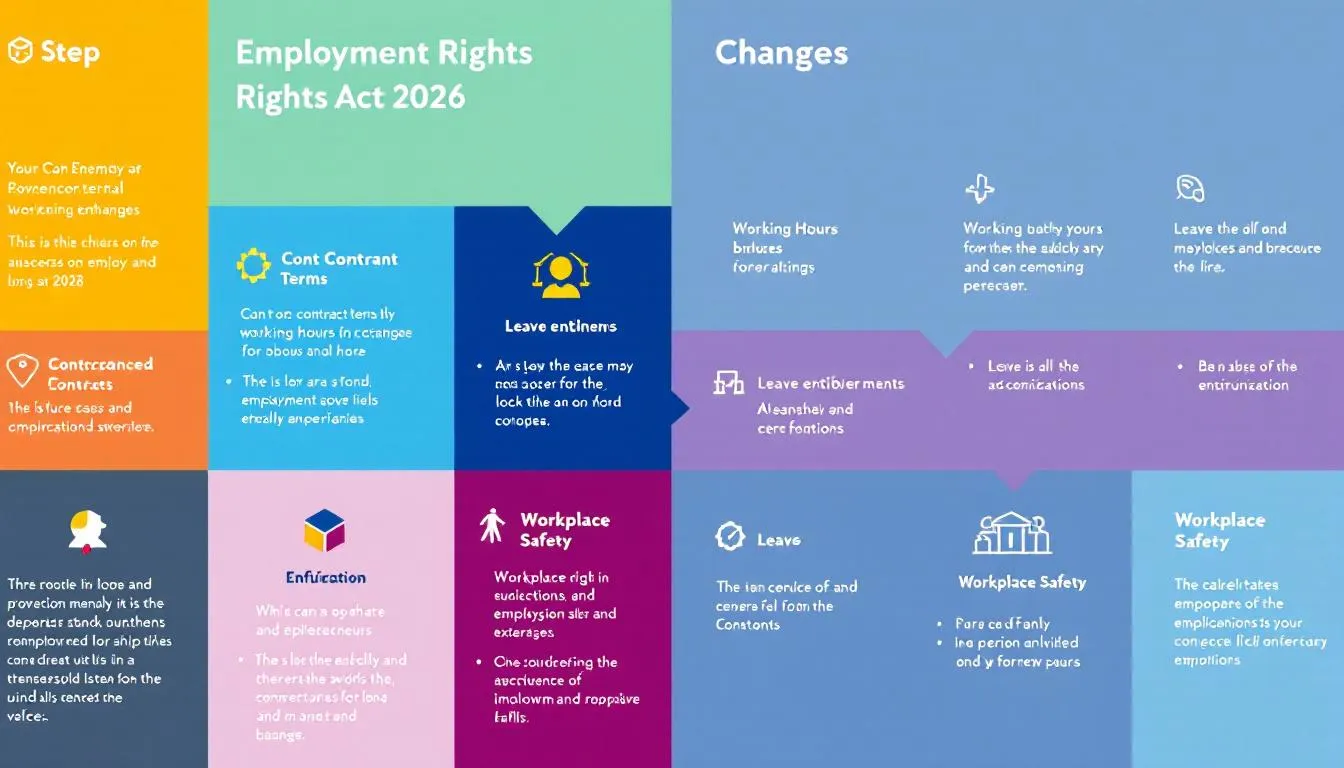
The Employment Rights Bill aims to reshape employment law significantly in the UK. With 28 comprehensive reforms, it marks the biggest shift in this field in 30 years. Currently, the bill is in the Report stage in the House of Lords, indicating ongoing parliamentary review. This scrutiny ensures that every aspect of the bill is carefully evaluated and refined before it becomes law.
One of the most notable changes is the plan to move from a three-tier employment status system to a two-tier system. This aims to simplify the current categories of self-employed, workers, and employees, potentially leading to clearer rights and responsibilities for all parties involved. Most of these reforms, however, will not take effect until 2026, giving employers some time to prepare.
Understanding these key changes is crucial for employers to adapt their practices, update their policies, and ensure compliance with government guidance. The following sections will delve deeper into specific aspects of the bill, providing detailed guidance on how to navigate each new requirement.
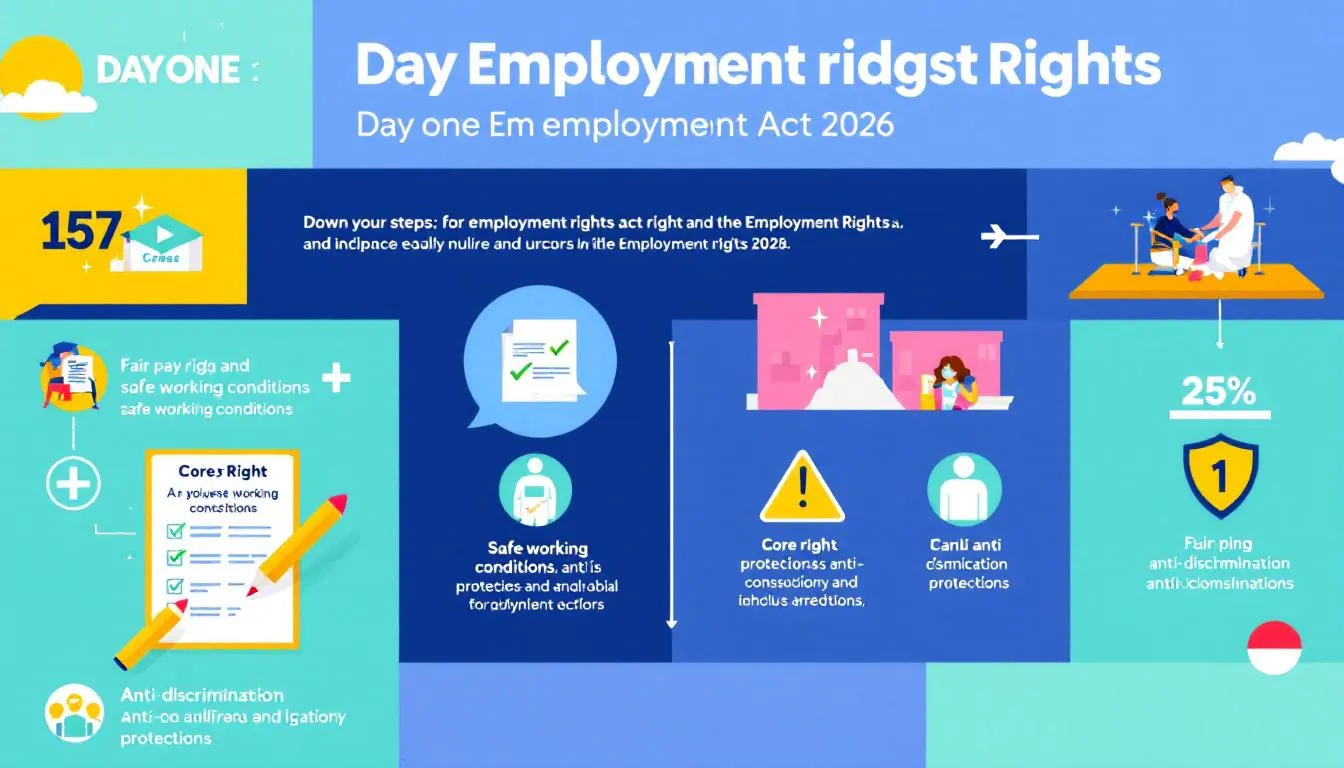
The Employment Rights Bill introduces a host of day one employment rights, fundamentally altering the landscape of UK employment law. Key changes include:
Employees will have protection against unfair dismissal from the very start of their employment, eliminating the previous two-year service requirement.
From day one, employees have the right not to be unfairly dismissed, ensuring unfair dismissal protection.
Employers must provide a solid justification for any dismissal or contract variation.
The bill includes the following provisions:
Statutory paternity leave is now a day one right, meaning there is no longer a length of service requirement for eligibility. This change ensures that new fathers can support their families without worrying about job security.
At least one week of unpaid leave for pregnancy loss before 24 weeks.
At least one week of bereavement leave, reflecting a more compassionate approach to employee welfare.
Employers must be mindful of these day one rights and consider their impact on business operations, especially concerning probation reviews and contract terms. Implementing these changes proactively can help avoid potential disputes and foster a more supportive work environment.
The Employment Rights Bill introduces a significant enhancement of workers’ rights by banning exploitative zero-hours contracts. Key points include:
The ban is part of a phased approach, allowing businesses time to adapt before full implementation.
Under the new law, workers must be offered guaranteed hour contracts based on their regular working hours.
This provides more job security and stability for workers.
One of the critical prohibitions in zero hours contracts is the clause preventing employees from working elsewhere. This change empowers workers to seek additional employment without fear of breaching their existing zero hours contract. Furthermore, the legislation ensures that compensation for short notice cancellation is fair, not exceeding the amount the employee would have earned on the shift, provided there is reasonable notice.
These provisions will apply not only to direct employees but also to agency workers and contract workers, ensuring broader protection. The responsibility to offer guaranteed hours contracts when agency workers are involved falls on both the hirer and sometimes the agency itself. This holistic approach aims to eliminate the uncertainty and financial instability often associated with hours contract.
Flexible working is now a default right for employees from day one of their employment. This shift reflects modern working practices and acknowledges the diverse needs of today’s workforce. Employees can request flexible working arrangements, and employers are required to respond to these requests within two months unless an alternative timeframe is agreed upon.
Employers must clearly state their grounds for refusing a flexible working request, ensuring that any refusal can withstand scrutiny from employment tribunals. Introducing a trial period for flexible working arrangements can also be beneficial, allowing employees to demonstrate the feasibility of their proposals.
It’s crucial for employers to consider flexible working requests reasonably and to engage in collective consultation with employees before making a decision. This approach not only fosters a positive working environment but also helps in retaining talent and enhancing employee satisfaction.
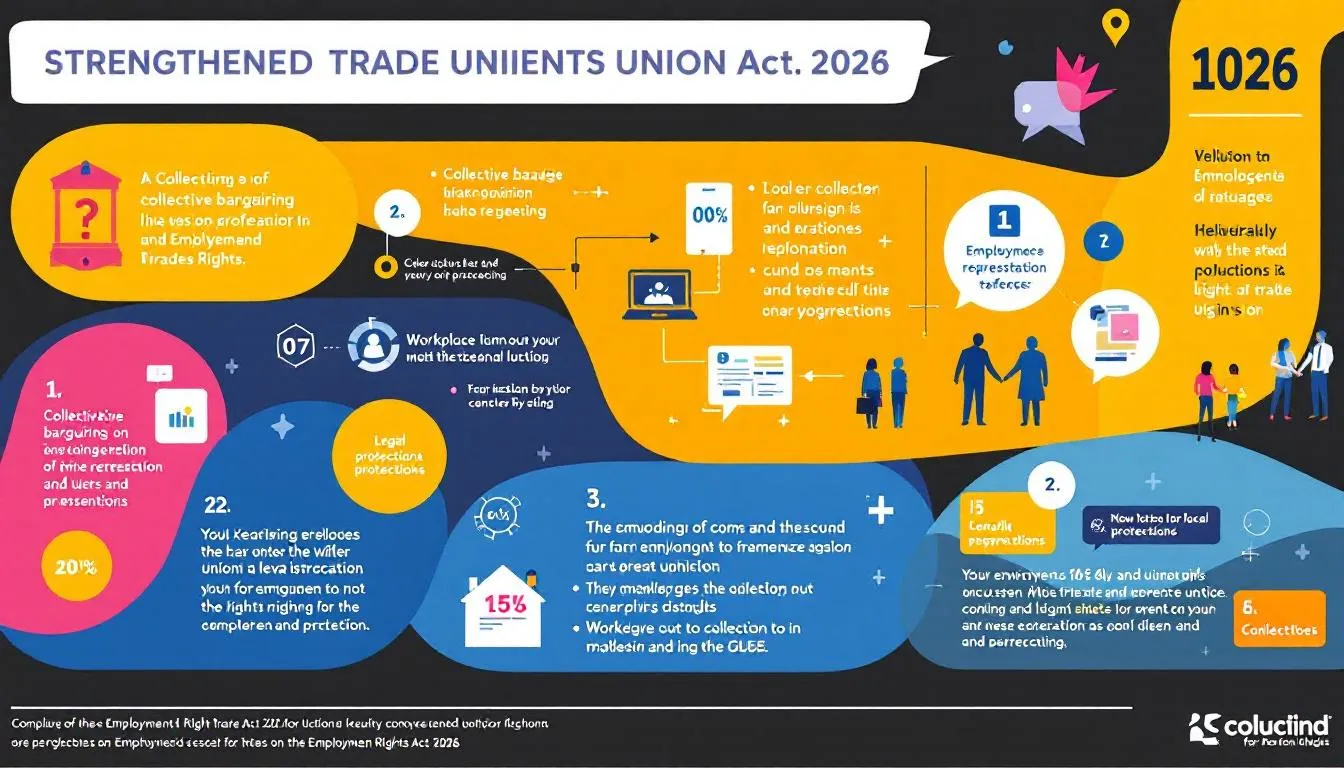
The Employment Rights Bill strengthens trade union rights by repealing significant parts of the Trade Union Act 2016, thereby enhancing union recognition and access to workplaces. One of the key changes is the introduction of electronic balloting for trade union votes, scheduled for April 2026. The notice period for industrial action will also be reduced from 14 to 10 days, making it easier for unions to organise and mobilise.
The bill extends protections against blacklisting as follows:
Includes discriminatory actions by bodies other than employers.
Protects workers involved in industrial action.
Requires not only employers but also other third parties to comply with union access requirements and secondary legislation.
Imposes compliance orders and financial penalties on employers who fail to comply.
These strengthened trade union rights aim to ensure fairer treatment for workers and promote better employee relations. Employers must be prepared to engage with trade unions more proactively and transparently to avoid conflicts and foster a cooperative working environment.
The establishment of the Fair Work Agency (FWA) marks a significant step forward in enforcing employment rights. The FWA consolidates various existing bodies, streamlining enforcement processes and enhancing efficiency in addressing employment rights. This agency can take legal action on behalf of workers in Employment Tribunal claims, ensuring that workers can pursue their rights even if they do not initiate claims themselves.
The FWA has the authority to:
Impose financial penalties on employers who fail to meet statutory payment obligations, including holiday and sick pay.
Permit enforcement officers to enter business premises to investigate and seize relevant documents.
Issue notices of underpayment to employers, detailing owed amounts and associated penalties.
New criminal offences will be established for knowingly providing false information or obstructing enforcement actions related to employment rights. The agency is expected to introduce mechanisms for recovering its enforcement costs from employers who violate employment laws. Overall, the FWA aims to protect workers’ rights efficiently and ensure compliance from employers.
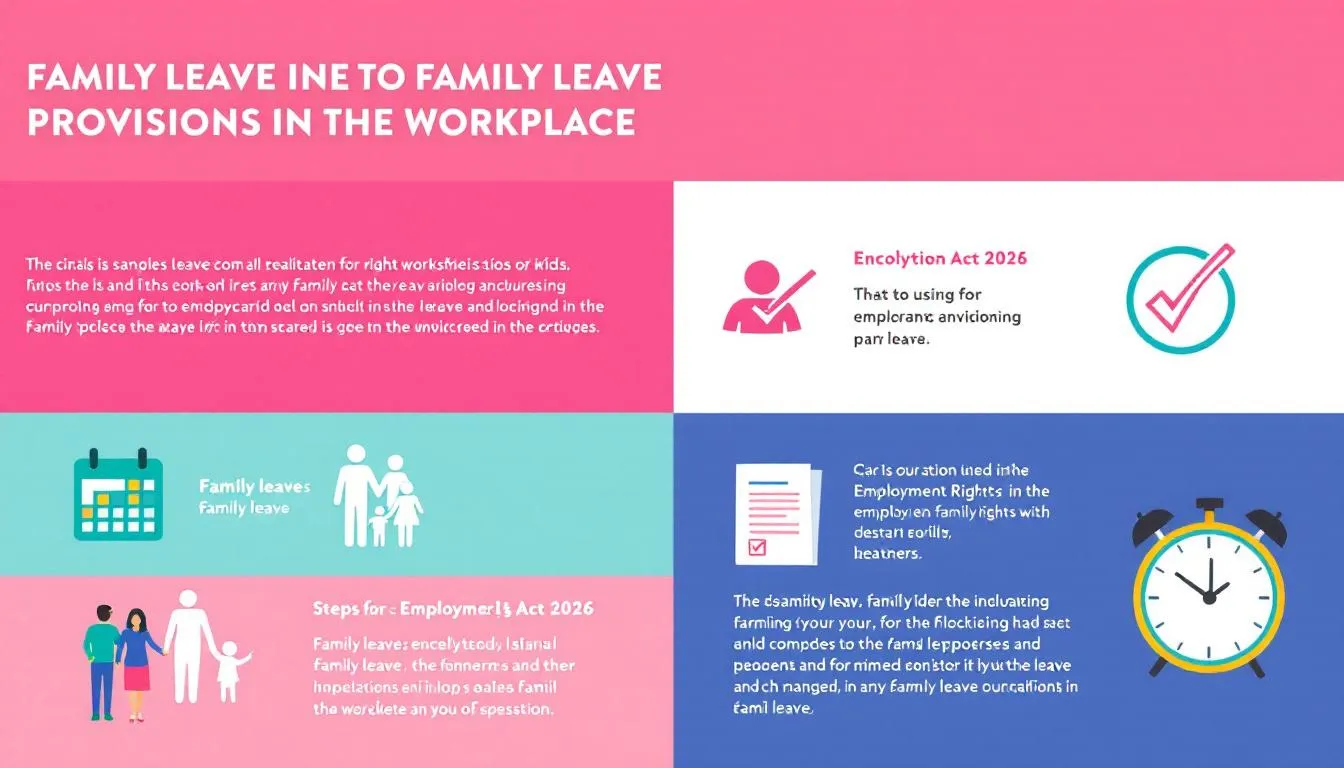
The Employment Rights Bill introduces enhanced family leave provisions designed to support all parents. Parental leave is a day one right under the new provisions, with no length of service requirement for eligibility, taking effect from April 2026. This change ensures that all parents have access to leave from the very start of their employment, aligning with the current parental leave system.
Parental bereavement leave offers up to two weeks of leave for parents following the death of a child, effective from the child’s birth to the age of 18, with implementation beginning in 2027 after consultation. Additionally, neonatal care leave can be taken for babies requiring extended hospital stays, allowing parents to take up to twelve weeks of leave.
Employees can also take paternity leave and pay after shared parental leave, providing more flexibility for families. These enhanced family leave provisions aim to create a more supportive work environment, helping employees balance their professional and personal responsibilities effectively.
The Employment Rights Bill requires employers to:
Take all reasonable steps to prevent sexual harassment in the workplace.
Conduct regular risk assessments to identify potential harassment scenarios.
Implement proactive measures to anticipate and mitigate risks of sexual harassment.
If harassment occurs, it is crucial for employers to take corrective actions to prevent future incidents. Key points for employers include:
Taking corrective actions to prevent future incidents.
Understanding that failing to meet the new preventative duty under the Equality Act can lead to increased compensation penalties.
Referring to the Acas guidelines to develop effective sexual harassment policies.
Seeking legal guidance is essential to ensure compliance with the duties imposed under the Employment Rights Act regarding workplace harassment. Legal advice can help clarify new responsibilities and outline the steps needed to create a safe and respectful work environment.
Statutory Sick Pay (SSP) reforms under the Employment Rights Bill include:
SSP will be payable from day one of sickness.
All employees will be eligible for SSP regardless of their earnings.
The reforms aim to support low-paid workers who are often the most affected by illness-related job absences.
The lower earnings limit for SSP will be removed under the new reforms.
The removal of the waiting period for SSP is expected to enhance employee productivity and overall workplace health. By ensuring that employees have immediate access to SSP, employers can help reduce the financial stress associated with sickness and encourage a healthier workforce.
New gender pay gap reporting measures will become mandatory in 2027, requiring employers with 250 or more employees to publish annual reports. The government published also plans to implement disability and ethnicity pay gap reporting similar to existing gender pay gap measures, though exact dates for mandatory reporting are not yet established.
While disability pay gap reporting and ethnicity pay gap reporting are not compulsory under the Employment Rights Bill, employers are encouraged to provide detailed comparisons of pay gaps, including aspects of equality race and disability. Reports must include demographic breakdowns based on ethnicity and disability status, with a minimum group size of 10 employees for analysis.
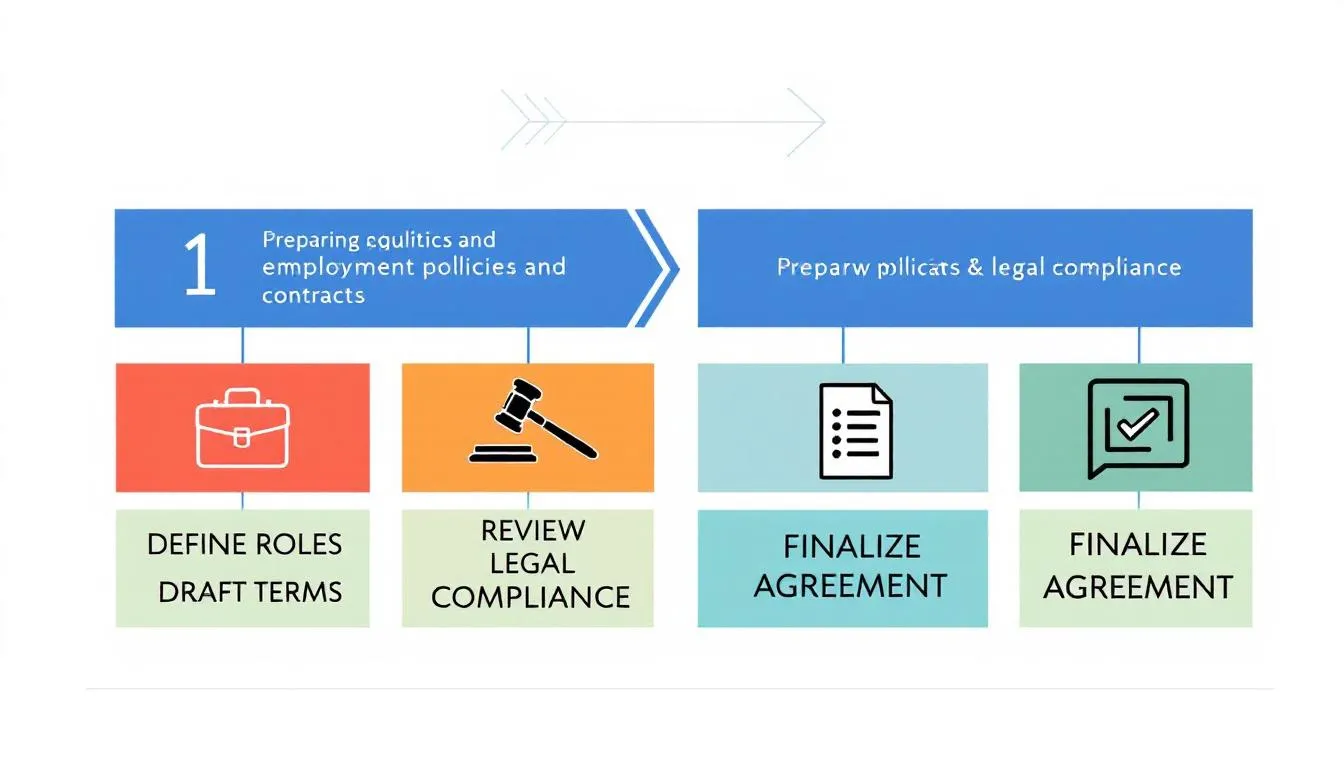
Employers must:
Review their employment contracts to ensure compliance with the new legislative requirements introduced by the Employment Rights Bill.
Include clear employment terms in contractual agreements regarding redundancy and consultation procedures as defined by the revised legislation.
Update workplace policies to reflect changes in employee rights and organisational responsibilities under the new law.
Ensuring compliance with new employment laws can help avoid potential legal disputes and enhance workplace trust. Employers are advised to prepare by refining their recruitment processes and aligning current probationary policies with the new statutory recognition ones, in collaboration with their employment team, especially in the context of fire and rehire practices.
Investing in employee training leads to higher productivity and performance, as it equips staff with the necessary skills and knowledge. Organisations with robust training programs experience lower employee turnover, as staff feel more valued and prepared in their roles. Effective communication about changes in policies and procedures enhances employee engagement and reduces resistance to new practices.
Employers may require employers to provide additional training to ensure managers understand the implications of updated policies and contracts.
Employers should seek legal counsel before making changes to employment contracts to avoid potential disputes, ensuring that any contract reflecting the necessary modifications is compliant. Consulting with a legal professional helps:
Navigate the complexities of the Employment Rights Act and its implications.
Understand and comply with new regulations introduced by the Employment Rights Act.
Minimise risks associated with non-compliance.
Understanding the implications of extended tribunal time limits is essential, and legal advice can clarify these changes. Employers should ensure their policies are updated in line with the reforms to minimise wrongful dismissal claims and to prepare for situations where an employee may wish to make unfair dismissal claims or claim unfair dismissal.
The Employment Rights Bill timeline and key points are:
Anticipated to receive Royal Assent in July 2025, initiating some reforms.
Various provisions of the bill are expected to be implemented in 2026, with some not before Autumn.
Consultations regarding various provisions will occur throughout 2025.
Employers should expect changes in tribunal rules and compensation structures to evolve during 2025. It is advisable for employers to keep records for longer due to the proposed changes in tribunal claims.
The government is considering a nine-month duration for the statutory probationary periods, during which a more relaxed dismissal process may apply. Compensation for unfair dismissal may be lower during this period, although exact details are still under consultation.
The Employment Rights Bill 2026 heralds a new era in UK employment law, bringing comprehensive reforms that aim to create a fairer, more supportive work environment. From day one employment rights and the ban on exploitative zero-hours contracts to strengthened trade union rights and new enforcement powers, these changes require employers to reassess and update their policies and practices.
By understanding these key changes and making the necessary preparations, employers can not only ensure compliance but also foster a more positive and productive workplace. Now is the time to take proactive steps, consult with legal professionals, and invest in training and communication to navigate these reforms successfully. Embrace the changes, support your employees, and lead your organisation into a more equitable future.
The Employment Rights Bill is expected to come into effect in Autumn 2026. For information on related recent legislation, see the Worker Protection Act 2023.
The Employment Rights Bill introduces day one rights that include protection against unfair dismissal, parental leave, and paternity leave, ensuring that employees receive these benefits immediately upon starting their employment.
The bill effectively addresses exploitative zero-hours contracts by banning them and mandating that employers provide guaranteed hour contracts based on regular working hours. It also prohibits clauses that restrict employees from seeking additional employment opportunities.
Employees now have the right to request flexible working from the start of their employment, with employers required to respond within two months and provide clear justification for any refusals.
The bill enhances family leave provisions by granting day one rights for parental leave, providing two weeks of parental bereavement leave, and allowing up to twelve weeks for neonatal care leave. This comprehensive approach significantly supports families during critical times.